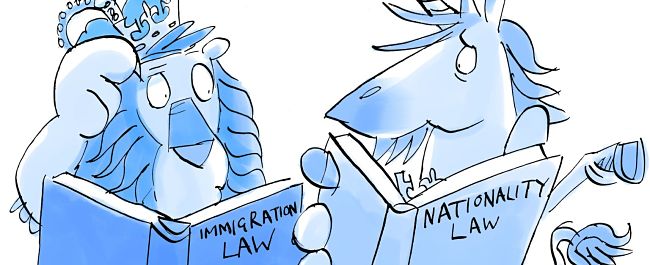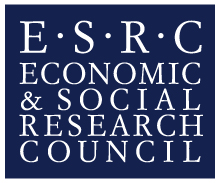Addressing challenges in acquiring British citizenship in times of Brexit

Instead of tightening the process for longterm residence for EEA nationals, research suggests that the Home Office should use the Brexit period as an opportunity to overhaul the system and make the process simpler and more accessible for all long-term residents who satisfy legal requirements.
About the research
British citizenship is prized as a secure legal status by migrants from all over the world. Skilled migrants are valued in various sectors of the British economy.
The expectation would be that skilled migrants who are present in the UK for the long term would find nationality and immigration procedures and processes simple as well as accessible.
Yet, research on migrants who come to the UK with higher education qualifications and professional skills reveals that most of them struggle with acquiring long-term leave to remain in the country and in subsequently acquiring British citizenship.
This causes them tremendous stress and insecurity in their home and work lives. Employers are also uncertain about whom they can retain in the workplace.
Thus, apart from general requirements of fairness and equality towards all, it also makes economic sense for the Home Office to remove these barriers from long-term legal status and citizenship in the UK.
For third country nationals (non-EEA nationals) securing a long-term legal status is a necessary pre-condition for securing British nationality. Legal residence for five years leading on to indefinite leave to remain (ILR) is the ordinary route to citizenship.
However, acquiring ILR is a daunting challenge for many.
Applicants must establish they have lawful, continuous presence for which they are required to submit lots of supporting documentary evidence along with lengthy application forms in order to qualify.
The application process is expensive and lengthy with very little certainty of outcome.
Policy implications
The research includes data from applicants for citizenship from within the EEA region as well as from other countries.
However, the citizenship pathways of EEA long-term resident nationals in the UK have been relatively uncomplicated because of easier access to permanent residence (the equivalent of ILR for EEA nationals).
While designing the post-Brexit long-term settlement and citizenship framework it is important to make positive changes for all future applicants instead of creating new barriers for EEA nationals who seek British nationality.
Brexit and its implications
Since the vote to leave the EU a year ago, millions of EU citizens living in the UK, and about a million UK expats in other EU states, have been living in a state of uncertainty about their future.
At present, EEA nationals in Britain exercise free movement EU treaty rights which enable them to live in the UK without being subject to British immigration rules.
Once they complete five years of residence they can apply for permanent residence and then proceed towards citizenship.
After the 2016 referendum concrete discussions about the UK leaving the EU started.
At this time the Home Office introduced the requirement for EEA nationals to produce a permanent residence card as evidence for their citizenship applications.
Previously there was no such pre-requisite for a citizenship application, and after five years of residence, EEA nationals automatically were presumed to be permanent residence holders.
During the Brexit negotiations the permanent residence application forms for EEA nationals have been redrafted and expanded to become an 85-page complicated application form (with 40 pages of guidance notes) creating much confusion amongst applicants.
There were severe delays in processing applications for permanent residence and nationality applications.
While much still remains unclear, it is likely that EEA nationals will experience problems similar to other applicants once they lose their secure status in Britain connected to free movement rights.

Key recommendations
1. The Home Office should process applications at cost and, in some instances, there should be fee waivers, (for example, for children who are long-term residents but located in precarious families).
2. The Home Office should provide clarity about documentation requirements. What documents are needed, and why, should be explained in a clear and concise manner. Checklists should be provided.
3. All application forms should explain what is, and what isn’t, acceptable supporting evidence. Viable alternatives should be listed in case applicants are missing certain documents.
4. Legal aid for legal advice should be made available for citizenship and nationality applications. At present there is no legal aid for receiving legal advice for such applications.
5. To aid transparency, the Home Office should provide process-maps (where the application goes and next steps) to show how applications proceed.
6. The Home Office should provide expected time scales for decisions. It should also provide data on how far such expected time scales are met in reality.
Research findings
Recent research described in an open access book draws from life stories of successful applicants for British Citizenship (all names altered to maintain anonymity).
These stories are a source of user feedback on British nationality law and process from which it is possible to identify several critical problems with the application procedures.
1. Expense of applications
In February 2018, the BBC reported that the Home Office has generated more than £800m from nationality services over the past six years. This report resonates with the stories of several research participants.
Akasi was frustrated with the fees her household has had to pay for her partner’s applications over the year. Her partner (born in Ghana) has had to spend more and more money over the years while applying for citizenship.
Fees, I think now for an adult it’s £1,300, but my partner, who got his citizenship last week, I think over the years he’s probably spent something like four or five grand, in terms of the visas and top-up.
This was a severe strain on family resources with implications for Akasi’s own life plans.
Children’s citizenship pathways are also expensive even though children register rather than naturalise. At present children have to pay £973 for registration. The cumulative costs for families often proves prohibitive.
I could not fly to visit my parents living in Ghana for four years in order to save up.
2. Uncertainty about procedures
Applicants lack adequate information about ILR and citizenship application processes. Legal help is inaccessible for most applicants.
Applicants rarely know which documents to submit and when they will be informed of outcomes. They experience anxiety brought on by the uncertainty of the process.
Sonia (Indian origin with right of abode in the UK) struggled with her application.
… there was no recourse to ring anybody – no helpline to say that I was feeling very vulnerable and how long? I started to get very, very nervous. I really didn’t know what was going to happen…. I became very afraid because my daughter was 16 and still had two years of school and university, and my son was also just finishing university. I felt very vulnerable as they have no other family. I was terrified for the first time about it being rejected, which would be devastating for us as a family.
3. Unclear documentation and supporting evidence requirements
Many applicants provide as much supporting evidence as they can to their applications as they fear rejection.
This increases their expenses and delays submission of their applications. They fear missing important documents as the documentation requirements are very unclear.
Adaoma, a 54-year-old Nigerian-born woman based in Bristol captures this experience in an evocative story.
For me, citizenship is my blue suitcase which I lugged from one meeting to another. Filled with papers. Birth certificate, mortgage loan papers, you name it. My whole life – in a box. For every lawyers’ meeting. And of course, the lawyer always wanted the one bit of paper I did not have that time. It was mad, the amount of papers I had in that box for 6-8 years. I still have that blue suitcase, but I do not take it on trips.

4. Delays in decision-making
There are significant delays in visa and nationality applications. Time delays are often associated with errors in processing applications.
Research by Laurie Fransman has shown that at times the UK naturalisation process has taken eight years, instead of five, due to delays.
In their stories applicants also report delays of years during which they are kept in the dark about the progress of their applications.
In addition, reconsideration processes for failed applications often dragged on with no decisions, nor any information from the Home Office.
Georgina, born in Romania but now British and living in Wales, had submitted citizenship applications for her two children. She had to pay additional biometric enrolment fees.
After the biometric enrolment had been completed, she again got a reminder for both her children to be enrolled.
It took her several weeks to find out that the Home Office had mistakenly swapped her children’s enrolment forms; her son’s data was filed for her daughter’s and vice versa.
Georgina says the potential forfeiture of fees for a failed application is what caused her most anxiety during the delay.
It was the most infuriating thing because I could not keep paying. I would respond the same day to their response but then they would be responding a week later to a response that I had written a week before.
Further information
Prabhat D (2018) Britishness, Belonging, and Citizenship: Experiencing Nationality Law, Policy Press
Citizenship for Children and Young Persons an open access training website, developed with Project for Registration of Children as British Citizens.
Prabhat D, Hambly J, Valdez, S (2016) Children’s British Citizenship: exposing the barriers to registration
Policy Report 24: Mar 2018
Addressing challenges in acquiring British citizenship in times of Brexit (PDF, 892kB)
Contact the researchers
Dr Devyani Prabhat, Senior Lecturer in Law, University of Bristol Law School
Authors
Dr Devyani Prabhat, University of Bristol Law School
